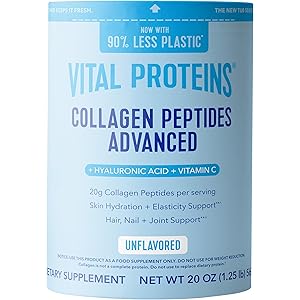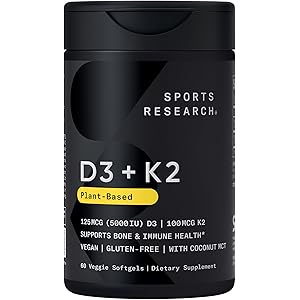Vital Proteins Unflavored Collagen Peptides, 20 OZ
$42.99 (as of October 25, 2025 06:13 GMT +00:00 - More infoProduct prices and availability are accurate as of the date/time indicated and are subject to change. Any price and availability information displayed on [relevant Amazon Site(s), as applicable] at the time of purchase will apply to the purchase of this product.)Understanding Dietary Needs for Strength Training
When considering the question, What are the dietary needs for strength training?, it is essential to recognize that nutrition plays a pivotal role in enhancing performance and recovery. Strength training demands a well-rounded diet that supports muscle growth, energy levels, and overall health. This involves a careful balance of macronutrients, micronutrients, and hydration to optimize results.
Macronutrients: The Building Blocks
Macronutrients are crucial for anyone engaged in strength training. Proteins, carbohydrates, and fats each serve specific functions. Proteins are vital for muscle repair and growth, while carbohydrates provide the necessary energy to fuel workouts. Healthy fats support hormone production and overall cellular health. Understanding the right ratios of these macronutrients can significantly impact training outcomes.
The Role of Protein in Strength Training
Protein intake is often emphasized when discussing What are the dietary needs for strength training?. It is recommended that individuals consume approximately 1.6 to 2.2 grams of protein per kilogram of body weight, depending on their training intensity and goals. Sources such as lean meats, fish, dairy, legumes, and plant-based proteins are excellent options to meet these requirements.
Carbohydrates: Fuel for Performance
Carbohydrates are essential for providing the energy needed during strength training sessions. They help replenish glycogen stores, which are depleted during intense workouts. A diet rich in complex carbohydrates, such as whole grains, fruits, and vegetables, can enhance endurance and performance. It is advisable to consume carbohydrates before and after workouts to maximize energy levels and recovery.
Healthy Fats: Supporting Hormonal Balance
Healthy fats are often overlooked in discussions about strength training nutrition. However, they play a critical role in hormone production, including testosterone, which is vital for muscle growth. Incorporating sources of healthy fats, such as avocados, nuts, seeds, and olive oil, can help maintain hormonal balance and support overall health.
Hydration: The Forgotten Nutrient
Hydration is a key component of What are the dietary needs for strength training?. Water is essential for maintaining optimal performance, regulating body temperature, and aiding in nutrient transport. Athletes should aim to drink enough fluids before, during, and after workouts to stay hydrated. Electrolyte-rich beverages may also be beneficial for those engaging in prolonged or intense training sessions.
Micronutrients: The Unsung Heroes
While macronutrients often take center stage, micronutrients such as vitamins and minerals are equally important for supporting strength training. Nutrients like calcium, vitamin D, magnesium, and zinc play crucial roles in muscle function, recovery, and overall health. A varied diet rich in fruits, vegetables, whole grains, and lean proteins can help ensure adequate micronutrient intake.
Meal Timing and Frequency
Another aspect to consider when addressing What are the dietary needs for strength training? is meal timing and frequency. Consuming balanced meals and snacks throughout the day can help maintain energy levels and support muscle recovery. Pre-workout meals should focus on carbohydrates and protein, while post-workout nutrition should prioritize protein and carbohydrates to aid in recovery.
Supplements: Are They Necessary?
While a well-balanced diet should provide most of the nutrients needed for strength training, some individuals may consider supplements to fill gaps. Protein powders, creatine, and branched-chain amino acids (BCAAs) are popular among strength trainers. However, it is crucial to consult with a healthcare professional before starting any supplementation regimen to ensure safety and efficacy.
Individual Needs and Personalization
Finally, it is important to recognize that dietary needs can vary significantly from person to person. Factors such as age, gender, body composition, training intensity, and specific fitness goals all influence nutritional requirements. Therefore, it is advisable to tailor dietary plans to individual needs, possibly with the guidance of a registered dietitian or nutritionist.


